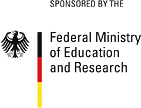Panel: Geopolitics of Knowledge beyond the Digital Invisible Hand: Actors, Institutional Settings and Asymmetries
Panel at the World Social Science Forum, Montreal, Canada
13-15/10/2013
Coordinators:
Claudio Costa Pinheiro (Fundação Getúlio Vargas (FGV), Rio de Janeiro, Brazil)
Barbara Göbel (Ibero-Amerikanisches Institut (IAI), Berlin, Germany)
Eloísa Martín (Universidade Federal do Rio de Janeiro, Rio de Janeiro, Brazil)
Barbara Göbel (Ibero-Amerikanisches Institut, Berlin, Germany): Inequalities of Knowledge and Science 2.0: An Introduction.
Claudio Costa Pinheiro (Getúlio Vargas Foundation, Rio de Janeiro, Brazil): The North and the South: Political Imagination and Economy of Knowledge Production
Hebe Vessuri (Universidad Nacional Autónoma de México, Morelia, Mexico): The North-South Divide and Southern Initiatives to Overcome the Recognition Barrier in Scientific Publishing
Eloísa Martín (Federal University of Rio de Janeiro, Brazil): International Publication in the Digital Age: a Fate, an Horizon, or none of the above? Strategies for the Global South.
Christoph Müller (Ibero-Amerikanisches Institut, Berlin, Germany): Library Collections on the Move: Digitization as a Strategy to Overcome Knowledge Asymmetries?
Alexis de Greiff (Red de Bibliotecas, Banco de la República, Bogota, Colombia): Moving Objects and Ideas: The International Digitization Project on the 19th century in Colombia of the Luís Ángel Arango Library.
The term Science 2.0 is widely used to describe digital and Internet-based practices for the production, dissemination and exchange of scientific knowledge. It further refers to digital knowledge infrastructures. The panel wants to discuss whether the worldwide trend towards an encompassing virtualization of scientific knowledge will reduce or even deepen further the knowledge asymmetries that exist between the Global North and the Global South. We want to do this by analyzing three main working tools for social scientists: (a) publications as a key instrument for the circulation and certification of knowledge, (b) libraries as the main infrastructure for knowledge production, and (c) public funding policies as the enabling mechanism for doing research. Hereby it will be stressed that digitization and digital media do not work as an invisible hand. Diverse actors and institutions, located at different levels and interconnected in complex ways, make decisions on the classification, evaluation, funding publication, access, organization and dissemination of knowledge produced offline and online. Those key actors and broker institutions not only pursue different interests; they also have a specific understanding on how the world of knowledge is organized and how it works. We want to show that although many help to replicate the center-periphery models, also strategies exist to overcome the persistent inequalities. New formats of knowledge exchange are developing. The panel is inspired by discussions at the international research network on interdependent inequalities in Latin America – desiguALdades.net (funded by BMBF) and takes advantage of participants’ institutional experience in the thematic fields addressed.
